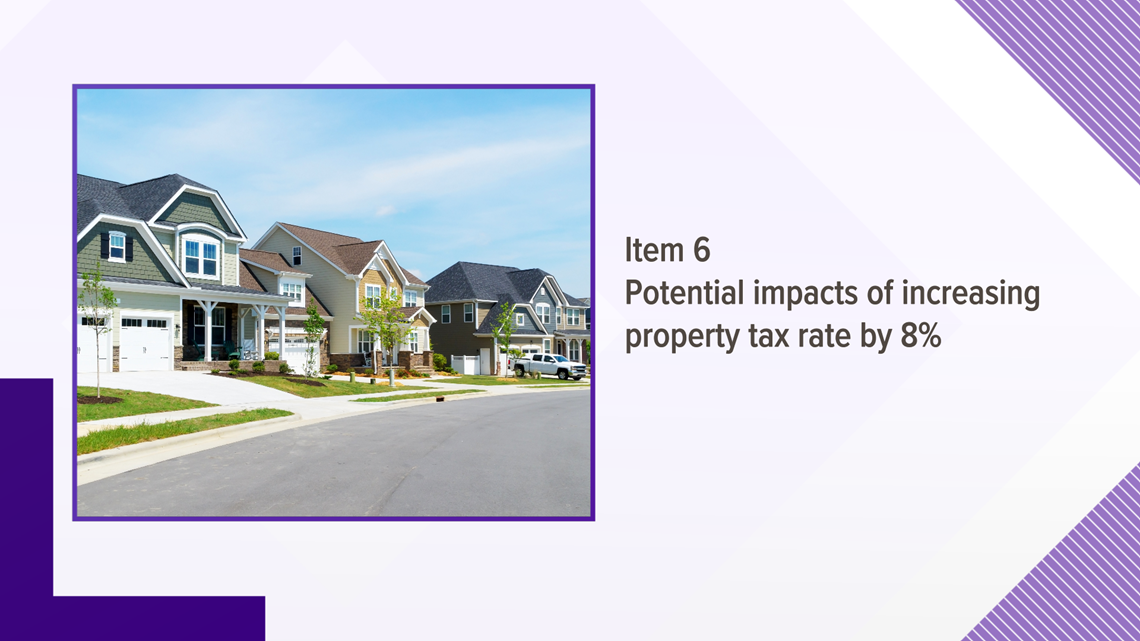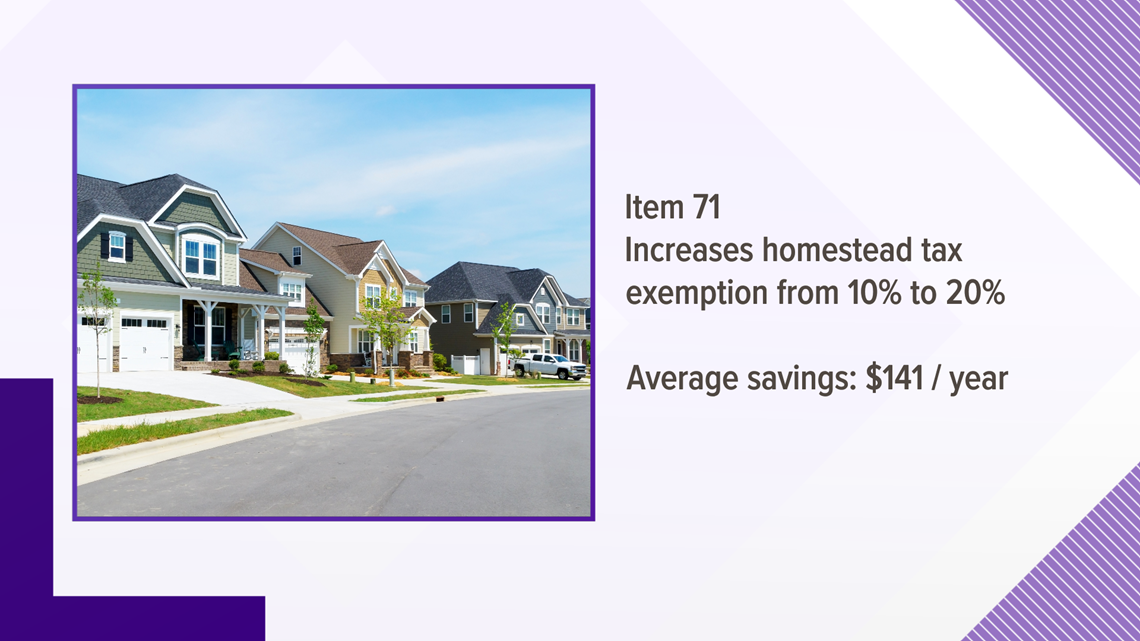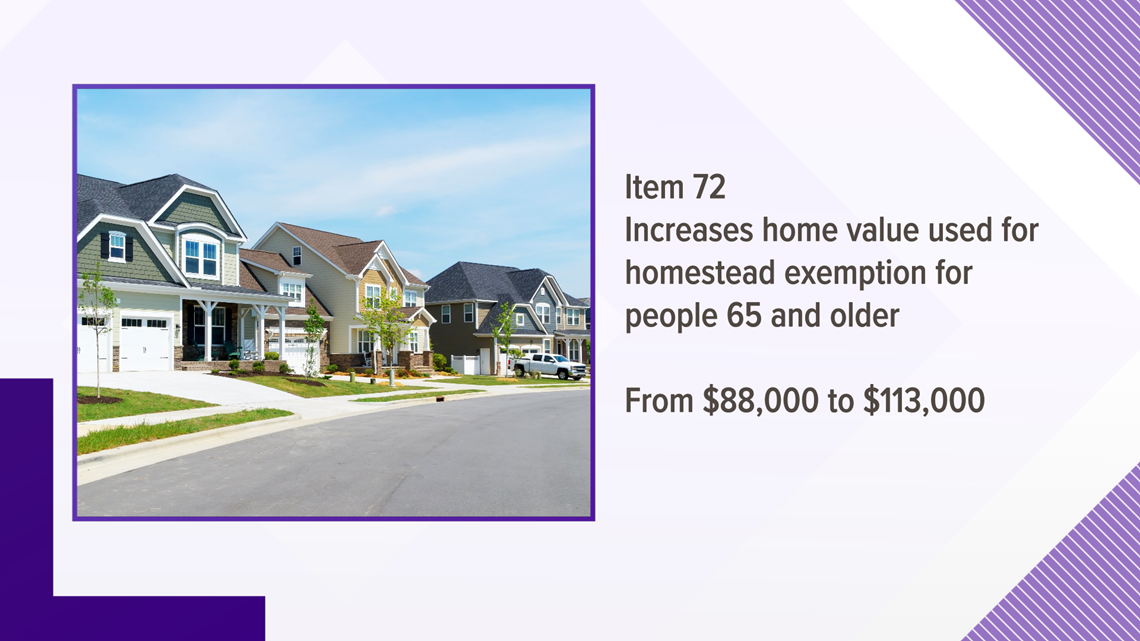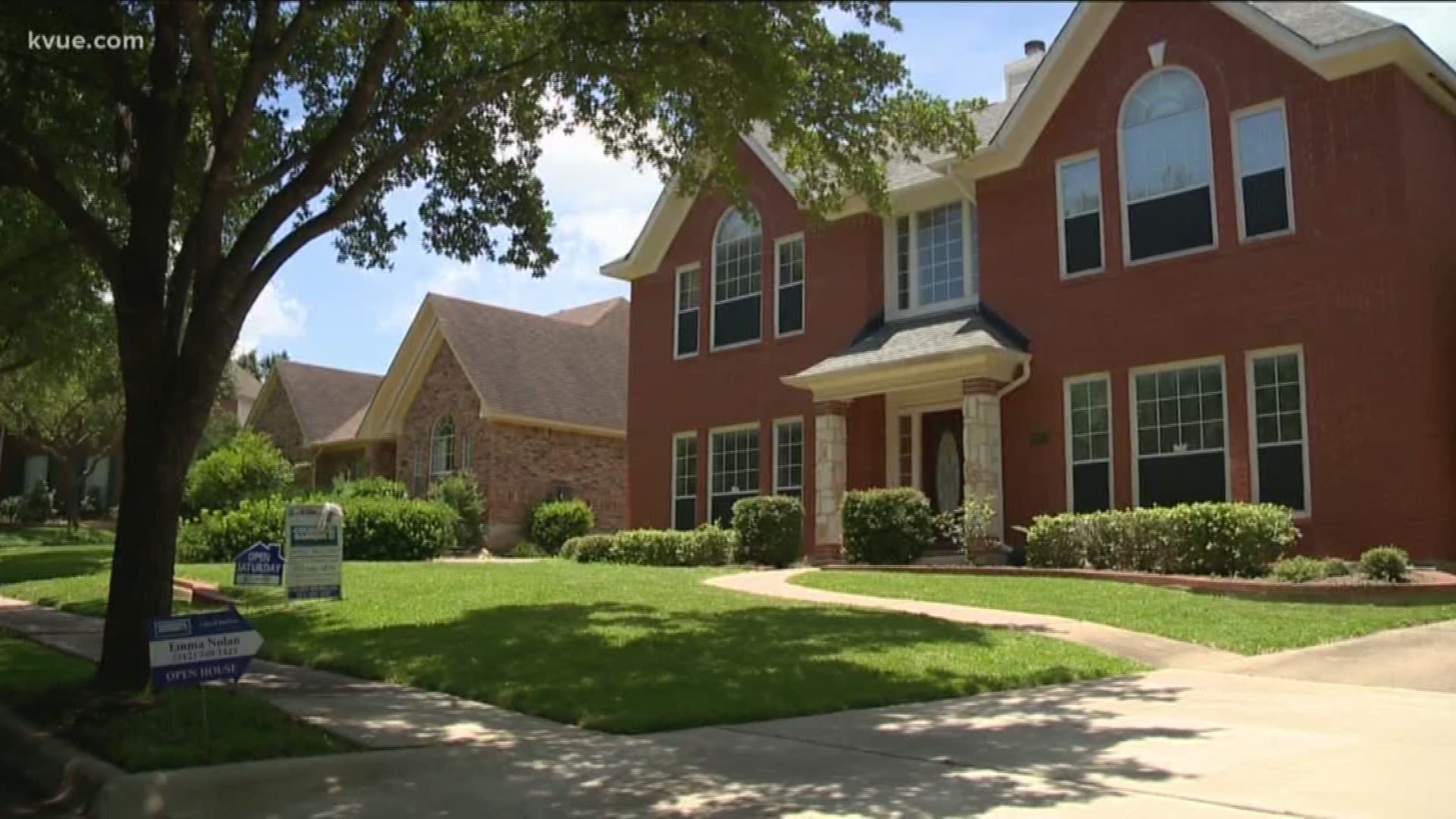AUSTIN, Texas — On Thursday, the Austin City Council was set to discuss three items related to property taxes.
Item 6 on the agenda directs the City's chief financial officer to run the numbers to figure out the potential impacts of increasing the property tax rate by 8% in the next fiscal year. Item 6 passed on a 10-0 consent agenda vote Thursday, with Councilmember Mackenzie Kelly (District 6) off the dais.
In 2019, Texas lawmakers decreased how much cities can increase property taxes without voter approval, dropping the rate from 8% to 3.5%. But cities are authorized to go back to 8% if there is a disaster declaration.
Gov. Greg Abbott renewed the State's declaration because of the COVID-19 pandemic back in March and issued another declaration after the February winter storms, which opens the door for the higher increase.


Two other ordinances could help soften the blow for some homeowners.
Item 71 on the agenda states that the ordinance would settle "the tax exemption for the percentage-based property tax (ad valorem) residence homestead exemption at the current level of 10% of the assessed value or a different value that Council may establish up to a maximum of 20% in accordance with state law."
City staff estimate the change would result in the owner of a median-value home paying about $141 less per year in City property taxes than that person would have without the exemption – if the tax rate increase is capped at 3.5%. The State deadline for cities to increase the exemption is June 30.


On Thursday, Item 71 passed on first and second reading. The final vote will be held next week.
Currently, people with disabilities or who are 65 years old and older are able to take $88,000 off the appraised value of their home to lower the property tax amount due. Item 72 would increase that amount to $113,000. Item 72 passed on a 10-0 consent agenda vote Thursday, with Councilmember Kelly off the dais.
"There are many neighborhoods in my district that people are on fixed incomes or their home prices have skyrocketed over the years, including this past year in particular. And there are many, many folks that need this particular type of relief," Councilmember Paige Ellis (District 8) said.
On top of the flat-rate deduction, people in these groups would be eligible for the 20% exemption rate as well, if approved by the council.
"We should welcome every tool at our disposal to make it easier for people, particularly older individuals and those with disabilities, to stay in their homes," Councilmember Kelly said. "The people who live in Austin are what makes our city wonderful, and they're our most precious resource."


In a statement, Austin Mayor Steve Adler said the increased exemptions would benefit low-income homeowners who spend a bigger portion of their monthly income on housing than other residents. He also stated these exemptions would not really impact renters.
“Too many low- and middle-income Austin homeowners are facing difficulties staying in their homes and neighborhoods because of rising property taxes," Adler said. "While city taxes are only a small part of the total property tax bill, we still must do our part. It would be better if we could offer a flat homestead exemption, but the state does not allow this. Addressing affordability requires us to increase the supply of housing, but it also requires our City Council to use every tool in our toolbox to help residents stay in the communities they love.”
The council also approved Item 73, affirming support for a guaranteed income. This item amends the City's federal legislative agenda and directs the city manager to study and report to council on direct financial assistance programs for possible local initiatives.
Adler released the following statement Thursday evening:
“An unprecedented number of Austin residents are facing an affordability crisis. The most vulnerable are having difficulty meeting basic needs in the wake of the pandemic, compounded by historic injustice and inequity. Still, others are struggling to stay in their homes in a soaring real estate market. Data shows guaranteed income has the potential to secure neighbors’ most urgent basic needs, give vulnerable families a cushion for external shocks and volatility, and get re-invested in our local economy. Like our rental assistance programs, the increase in homestead exemption rates and savings for seniors, which I’m sponsoring today, guaranteed income is another tool in our fight to keep Austin affordable.”
For more information on the proposed items, click here.
The council is set to vote on the next budget in August. It will go into effect in October.
PEOPLE ARE ALSO READING:

